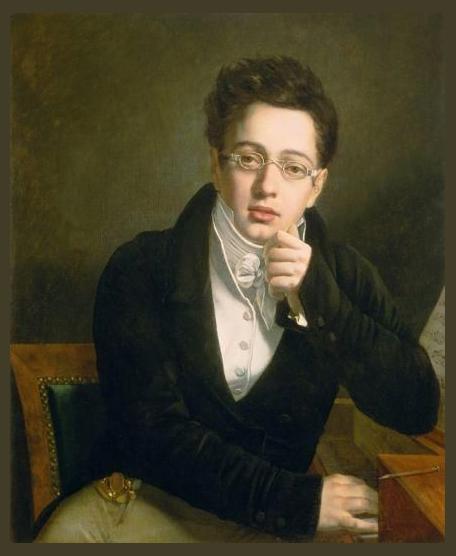 Franz Schubert
Franz Schubert
Franz Schubert: A Musical Journey
In the annals of classical music, Franz Schubert stands as a towering figure, his compositions resonating with unparalleled beauty and emotional depth. Among his most iconic works is the sublime "Ave Maria," a testament to his exquisite craftsmanship and enduring legacy.
Early Life and Influences
Born in Vienna in 1797, Franz Schubert displayed an extraordinary musical talent from an early age. Under the tutelage of his older brother Ignaz, he immersed himself in the works of Mozart, Beethoven, and Haydn, absorbing their harmonic intricacies and melodic genius.
Musical Breakthrough
At 18, Schubert composed his first masterpiece, the Symphony No. 5 in B-flat major. This early triumph propelled him into the forefront of Viennese society, earning him commissions and performances from renowned ensembles. However, his ascent was not without challenges.
Controversies and Scandals
Schubert's bohemian lifestyle and unconventional relationships raised eyebrows in the conservative Viennese society. His romantic entanglements often became fodder for gossip, and his political views sometimes clashed with the establishment.
Musical Triumphs
Despite the controversies, Schubert remained steadfast in his musical pursuits. His prolific output encompassed over 600 songs, 20 piano sonatas, and 10 symphonies. His compositions exhibited a remarkable range, from the ethereal delicacy of "Ave Maria" to the monumental grandeur of the "Unfinished" Symphony.
"Ave Maria"
First arranged by Schubert in 1825 as a setting for the Latin text "Ave Maria," the melody was later adapted for various vocal and instrumental versions. Its haunting beauty and serene expressiveness have made it a beloved hymn in both religious and secular contexts.
Musical Legacy
Franz Schubert passed away tragically in 1828 at the age of 31. His premature death cut short a brilliant career, but his music continues to inspire and enchant audiences worldwide. His legacy as one of the most influential composers of the Romantic era remains unchallenged.
Members
Franz Schubert was a solo composer and did not lead a musical band. His music was primarily performed by orchestras, ensembles, and soloists.
In the annals of classical music, Franz Schubert stands as a towering figure, his compositions resonating with unparalleled beauty and emotional depth. Among his most iconic works is the sublime "Ave Maria," a testament to his exquisite craftsmanship and enduring legacy.
Early Life and Influences
Born in Vienna in 1797, Franz Schubert displayed an extraordinary musical talent from an early age. Under the tutelage of his older brother Ignaz, he immersed himself in the works of Mozart, Beethoven, and Haydn, absorbing their harmonic intricacies and melodic genius.
Musical Breakthrough
At 18, Schubert composed his first masterpiece, the Symphony No. 5 in B-flat major. This early triumph propelled him into the forefront of Viennese society, earning him commissions and performances from renowned ensembles. However, his ascent was not without challenges.
Controversies and Scandals
Schubert's bohemian lifestyle and unconventional relationships raised eyebrows in the conservative Viennese society. His romantic entanglements often became fodder for gossip, and his political views sometimes clashed with the establishment.
Musical Triumphs
Despite the controversies, Schubert remained steadfast in his musical pursuits. His prolific output encompassed over 600 songs, 20 piano sonatas, and 10 symphonies. His compositions exhibited a remarkable range, from the ethereal delicacy of "Ave Maria" to the monumental grandeur of the "Unfinished" Symphony.
"Ave Maria"
First arranged by Schubert in 1825 as a setting for the Latin text "Ave Maria," the melody was later adapted for various vocal and instrumental versions. Its haunting beauty and serene expressiveness have made it a beloved hymn in both religious and secular contexts.
Musical Legacy
Franz Schubert passed away tragically in 1828 at the age of 31. His premature death cut short a brilliant career, but his music continues to inspire and enchant audiences worldwide. His legacy as one of the most influential composers of the Romantic era remains unchallenged.
Members
Franz Schubert was a solo composer and did not lead a musical band. His music was primarily performed by orchestras, ensembles, and soloists.